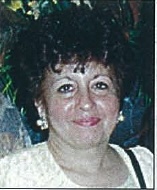By Lavina Melwani
It is hard to believe that in a few split seconds the world changed, and Tuesday, September 11, 8:48 am, became the demarcation line between then and now. The terrorist attacks on the World Trade Center have brought us into a chilling new world. Imagine, if you can, this word picture from The New York Times: “Strewn across Lower Manhattan, in shards and twisted piles and layers of ash, there is enough concrete to build a five-foot-wide sidewalk from New York City to Washington D.C. and enough steel to erect more than 20 Eiffel Towers.”
Yet it is the stunning loss of life which is unimaginable and heartbreakingly irreplaceable. Over 5,000 people were lost. Add in their children, spouses, families and friends, and the circle of bereaved is vast.
Indian-Americans are a significant part of this sad tapestry, interwoven into the fabric of America. Many Indian-American families in the tri-state area (New York, New Jersey and Connecticut) felt the shock waves. For those whose sons, daughters and spouses work in lower Manhattan, the morning of September 11 was fraught with anxiety.
Like so many others that had no way of knowing if their loved ones were safe, I, too, was sucked into this frightening limbo. My son works just a few blocks from the World Trade Center. All the phone lines were down. We could only watch the horrifying images on television and pray. Finally around noon we heard from him as he, along with thousands of other New Yorkers, walked uptown after a mass exodus from Ground Zero. They were the lucky ones.
As American families mourned their dead and missing, many Indians felt fully American for the first time as they shared the grief, the anger and the pain of Americans everywhere. This was their homeland and it was under attack. They were Americans as they cried and prayed for their missing loved ones, gave blood for strangers, waved flags, lit candles and comforted victims.
Indian-Americans have collected donations for the courageous firefighters, NYPD and EMS workers who lost their lives going into the fiery towers even as others were running out. Many Indian-American physicians and nurses are involved in the medical relief effort, working at several of the 170 hospitals in Manhattan pressed into emergency action.
For Indian-Americans, there has been a loss of some of their finest and brightest. A generation of Indian young people had gone into financial services and trading, the professions most strongly represented in the offices that were destroyed in the bombing.
As Indians grieve their loss, they are also faced with racial attacks, for they are the color of the terrorists. Switch on the TV and you hear of mosques and temples being vandalized, of racial slurs and bias attacks on Arabs, Indians, especially Sikhs, as well as Pakistanis and Bangladeshis. The low-income workers like Indian taxi drivers, gas station attendants and newsstand workers are especially vulnerable.
As Indians try to figure out their place in American society, it is the children of immigrants that are taking the lead in challenging hate-crimes and racial profiling. Where many immigrants may be hesitant to speak out or may have language barriers, the young Indian-Americans are speaking up. Indian Americans Center for Political Awareness is working with a number of organizations, such as the South Asian American Leaders of Tomorrow, to educate policy makers about racial profiling and bias crimes. Some like Neil Patel, who is Special Assistant to Vice President Cheney, and Deepa Iyer, who is with the Department of Justice in the Civil Rights Division, are right in the midst of political power.
September 11 changed everything but perhaps it has brought out hidden strengths that we did not know we possessed.
Lavina Melwani, a popular free-lance correspondent, was born in Sindh, grew up in New Delhi and has lived in Hong Kong and Africa. She currently resides in New York with her husband and two children.
